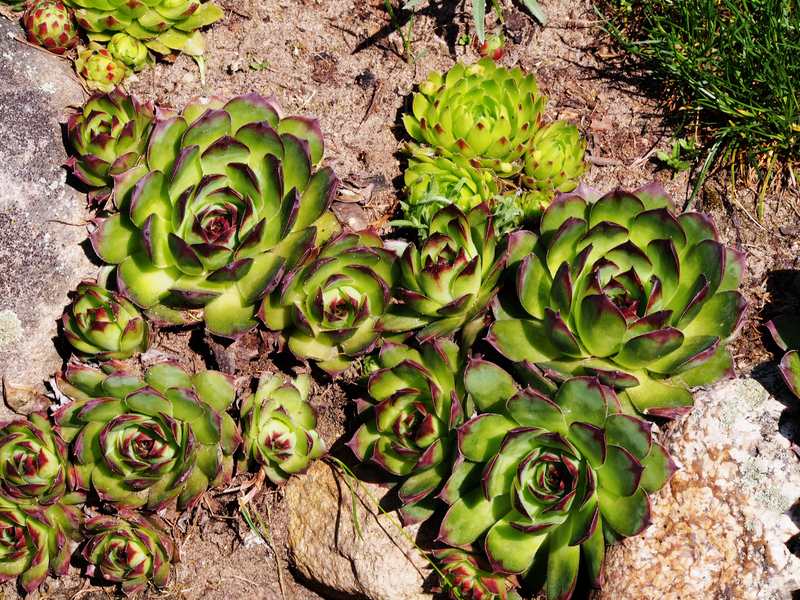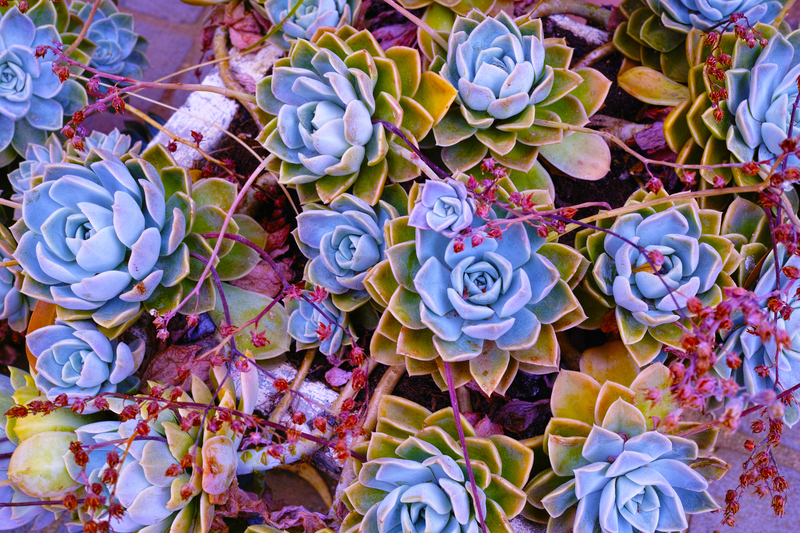Organic Waste: Transformative Magic for Soil
Posted on 18/06/2025
Organic Waste: Transformative Magic for Soil
In the journey towards sustainable agriculture and gardening, one often overlooked ally is organic waste. Rather than viewing it as mere garbage, consider it an invaluable resource--a magical ingredient capable of reviving soil health, boosting yields, and minimizing environmental impact.
Understanding the Power of Organic Waste
Organic waste refers to any biodegradable material derived from plants or animals that can break down naturally. It includes:
- Food scraps (vegetable peels, fruit rinds, coffee grounds)
- Yard waste (grass clippings, leaves, branches)
- Livestock manure
- Paper products
The transformative magic of organic waste for soil lies in its capacity to restore nutrients and organic matter, essential for healthy soil and thriving plants.

Why Organic Waste is Crucial for Soil Health
Soil is commonly called "the living skin of the earth." However, intensive farming, excessive use of chemical fertilizers, and erosion steadily strip it of vitality. This is where composted organic waste steps in as a game-changer.
Major Benefits of Using Organic Waste in Soil:
- Restores Soil Fertility: Adding decomposed organic materials increases vital nutrients like nitrogen, phosphorus, and potassium, which are crucial for plant growth.
- Improves Soil Structure: Organic matter enhances soil aggregation, increases water retention, and promotes better root penetration.
- Boosts Microbial Activity: Healthy soils teem with bacteria, fungi, and other organisms. Organic waste feeds this invisible ecosystem, making nutrients more available to plants.
- Reduces Environmental Impact: Using organic discards as compost diverts waste from landfills, lowering methane emissions and reducing the reliance on chemical fertilizers.
- Supports Carbon Sequestration: Decomposed organics store carbon in the soil, acting as a buffer against climate change.
How Does Organic Waste Transform Soil?
When you add organic kitchen waste or yard debris to the soil, it undergoes decomposition--a natural process led by tiny microbes, earthworms, and insects. Through this gradual transformation:
- Macronutrients and micronutrients locked in waste materials are broken down and released into forms plants can absorb.
- Soil texture and aeration improve, fostering healthy root systems.
- Pest and disease resistance are enhanced due to increased plant vigor.
The Magic of Humus
The end product of decomposed organic waste is called humus--a thick, dark, spongy material that is the heart of fertile soil. Rich in nutrients, humus:
- Acts as a slow-release fertilizer
- Promotes better water retention
- Binds soil particles together, preventing erosion
- Encourages biodiversity of beneficial microbes and fauna
Composting: Unlocking Soil Transformation
Composting is the art and science of turning organic waste products into soil-enriching humus. It's an easy, eco-friendly practice accessible to gardeners, farmers, and households alike.
Types of Composting
- Backyard Composting: Pile kitchen scraps, leaves, and garden waste in a bin or heap, turning occasionally to aerate.
- Vermicomposting: Use composting worms (typically red wigglers) to process food scraps into highly fertile worm castings.
- Trenching or Pit Composting: Bury organic waste directly in soil trenches or pits to let it decompose in situ.
- Industrial Composting: Municipal or commercial facilities process huge volumes of organic gene rations under controlled conditions, suitable for urban populations.
How to Start Composting Organic Waste at Home
- Choose a Location: Pick a well-drained, partially shaded site for your compost bin or pile.
- Add Organic Material: Layer green waste (nitrogen-rich materials like food scraps, fresh grass) with brown waste (carbon-rich items like dry leaves, cardboard).
- Maintain Moisture: Keep the pile damp--like a wrung-out sponge. Water as needed, especially during dry periods.
- Turn the Pile: Aerate with a pitchfork or compost turner every few weeks to speed up decomposition and prevent unpleasant odors.
- Harvest Compost: After 3-12 months, the compost should become dark, crumbly, and sweet-smelling--ready to nurture your garden soil.
What Organic Waste Can and Can't Be Composted
Compostable Organic Wastes
- Vegetable & fruit scraps
- Eggshells
- Coffee grounds & tea bags (unbleached)
- Grass clippings, leaves, twigs
- Shredded newspaper & cardboard
- Animal manure (from herbivores)
Avoid in Compost Piles
- Meat, fish, and dairy products (can attract pests)
- Oily foods or cooked food scraps
- Pet waste (from cats/dogs)
- Diseased plants or invasive weeds
- Glossy paper and chemically treated woods
Scientific Insights: How Organic Waste Rejuvenates Soil
Modern research underscores the remarkable value of organic amendments. Here's how nature's recycling process works:
- Nutrient Cycling: Decomposition by soil microbes turns complex organic residues into simple nutrients available for root uptake.
- Soil Structure: Organic matter binds mineral particles to form stable aggregates, enhancing aeration and reducing compaction.
- Beneficial Insects and Microbes: Bacteria, fungi, and earthworms flourish in organic-rich soils, controlling pests and diseases naturally.
- Improved Cation Exchange Capacity (CEC): Humus raises the soil's ability to retain essential nutrients, reducing fertilizer loss.
- Soil pH Buffering: Decomposed organics moderate pH, benefiting plants sensitive to acidity or alkalinity.
The cumulative effect? Transformative soil fertility, better structure, and thriving biodiversity.
Benefits of Upcycling Organic Wastes: For Gardeners and the Planet
Utilizing organic refuse for soil enhancement not only improves your garden's bounty but also helps the broader environment:
- Reduces landfill waste and greenhouse gases
- Conserves landfill space
- Promotes closed-loop, regenerative gardening systems
- Enhances urban green spaces and community health
- Boosts resilience to drought and soil erosion
By harnessing the natural transformation of household and yard waste, each gardener becomes an environmental steward.
Organic Waste Transformations Beyond Compost
While composting is the most popular method, other organic recycling techniques offer unique soil-building advantages:
- Mulching: Applying leaves, grass, or wood chips on top of soil to reduce evaporation, suppress weeds, and add nutrients slowly as the material decomposes.
- Green Manuring: Growing plants specifically to be turned into the soil for increased organic matter and nitrogen content.
- Bokashi Fermentation: A method using effective microbes to ferment (rather than decay) kitchen waste, useful for smaller urban spaces and faster processing.
- Biochar: Charred organic residues that store carbon long-term and improve soil water retention and microbial habitat.
- Sheet Composting: Spreading layers of organic matter directly on garden beds, letting them break down naturally over time.
Each of these methods amplifies the regenerative impact of organic waste on your soil.
Best Practices: Maximizing the Magical Benefits of Organic Waste
- Balance Carbon and Nitrogen: Aim for a balance of "browns" (dry leaves, straw, paper) to "greens" (fresh clippings, food scraps) in your compost for optimal decomposition.
- Chop and Shred: Smaller pieces break down faster. Chop up sticks and large vegetable scraps before composting.
- Avoid Chemicals: Do not compost weeds treated with herbicides or inorganic materials--they can harm soil life.
- Rotate Compost Applications: Apply finished compost throughout the year, not just in spring, to maintain soil magic year-round.
- Support Local Collection: Where available, support municipal food scrap collection or community compost programs.
Frequently Asked Questions: Organic Waste and Soil Transformation
1. How long does it take for organic waste to become soil?
It typically takes three to twelve months for organic residues to compost fully, depending on material type, weather, and how often you turn the pile.
2. Can I use organic waste directly in the garden without composting?
Some materials like autumn leaves or grass can be used directly as mulch. However, avoid burying large amounts of raw food scraps as they may attract animals or slow plant growth before decomposition.
3. Will my compost pile smell bad?
A healthy, well-aerated compost should have an earthy aroma. Foul odors typically result from excess moisture, lack of air, or inclusion of meats/fats.
4. Is composting safe for vegetables?
Yes--when properly composted, organic waste is safe and beneficial for food crops, eliminating pathogens and weed seeds.
5. What if I don't have space to compost?
Consider vermicomposting under the kitchen sink, signing up for local green waste pickup, or joining a community composting initiative.

Final Thoughts: Organic Waste as Nature’s Alchemy
The transformative magic of organic waste is a gift from nature that every gardener, farmer, and urban dweller can harness. Through mindful recycling of kitchen and garden discards, you enrich your soil, grow healthier plants, and contribute to a more sustainable earth.
Don't let organic resources go to waste--let them work magic in your garden, and be a part of nature's eternal cycle of renewal!
Further Reading & Resources
Share your own tips on using organic waste to transform your soil, and help grow a greener, healthier community!
Latest Posts
Perfect Gardening Gadgets for Outdoor Enthusiasts
Harmonize Garden Beauty and Comfort with Exceptional Seating
Herbs, Vegetables, and More: Your Container Gardening Toolkit
Transform ordinary backyard into an extraordinary kid's garden

